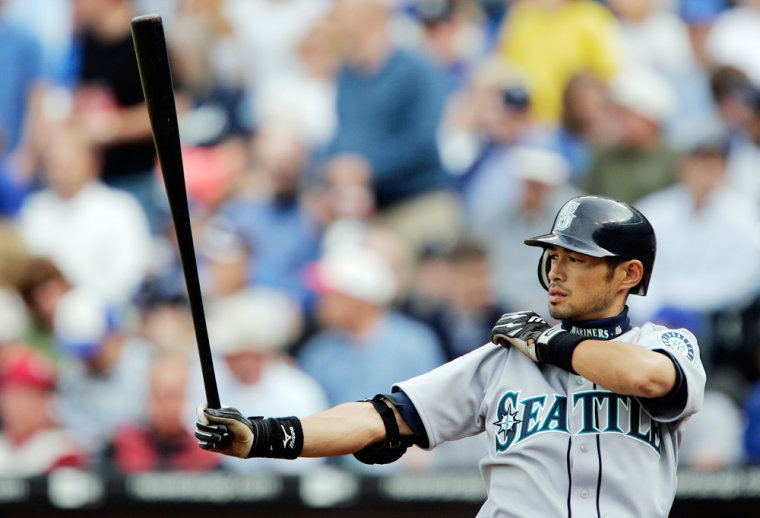The small-market Mariners have been baseball's most profitable team the past five years. Part of their success is making sure no one knows it.
Last year the Seattle Mariners had an abysmal season, winning 63 games and losing 99. It was the worst record in the American League West Division. But never mind. During the past five years the team has averaged $163 million in revenues, behind only the Boston Red Sox, New York Yankees and Mets. According to documents filed with a public stadium authority, which owns the Mariners' stadium, last year the team's operating income (in the sense of earnings plus depreciation and amortization, minus capital improvements) was $10.8 million. By contrast, baseball's most valuable team, the Yankees, had an operating loss of $37 million last year.
Forbes estimates the Mariners' worth at $414 million, the fifth highest in baseball, and 63 times their 1977 initial price tag of $6.5 million.
How can a small-market baseball team be so rich? Most of the credit goes to the Japanese. Fifty-four percent owner Nintendo ($4.9 billion sales) spent big bucks four years ago to sign Ichiro Suzuki, a speedy right fielder who had established himself as one of the best players in Japan. Last year Ichiro, as his fans call him, had 262 hits, breaking the single-season hit record (257) of St. Louis Browns legend Gorgeous George Sisler set in 1920.
Attendance at Safeco Field jumped 12 percent in Ichiro's first season. Since then attendance has averaged 3.3 million, the fourth highest among baseball's 30 teams. In late 2003 the team re-signed Ichiro for four years at $12 million a season. One of 25 players, he collects 14 percent of the team payroll. He also makes maybe $6 million a year by appearing in ads.
Ichiro fans, in both the U.S. and Japan, afford him rock star status. In one Seattle television ad campaign Ichiro hits the ball, then catches it himself. Ichiro trinkets adorn cell phones in Japan, where the Mariners' theme song is a popular ring tone. Dentsu, Japan's largest advertising firm, says Ichiro is the country's most marketable personality. Ichiro jerseys and merchandise have outsold those of all other Mariners, including former stars Randy Johnson, Ken Griffey Jr. and Alex Rodriguez.
The Mariners rank third in television ratings — measured as a share of each team's local market — behind the Red Sox and the Cardinals. Five years ago the team negotiated a ten-year deal with Fox worth $250 million. Only the Yankees, Mets and Braves generate more local media revenue. “I've never seen such a phenomenon,” says Mark Shuken, general manager of Fox Sports Net Northwest.
Japanese tour operators specialize in Ichiro-watching trips to Seattle. Dozens of Japanese fans were in Safeco's so-called Area 51 (Ichiro's number) last October when he got his record-breaking 258th hit. The ballpark sells sushi rolls, and Seattle restaurants like El Gaucho, a steakhouse, have menus printed in Japanese. Tourists from Japan account for 6 percent of sales at the downtown Executive Pacific Plaza Hotel; pre-Ichiro their share was less than half a percent. “They are good shoppers,” says Michael Cummings, head of Sports Den, a three-store chain in Seattle. Japanese buyers account for 10 percent of his baseball business.
As successful as the team is, nobody in management really likes to talk about it. Mariners President Charles Armstrong, who declined an interview with Forbes, instead told a Seattle reporter in March, “We'll see Forbes magazine come out and say we're making all this money. But in essence we're not.” According to Armstrong, the Mariners just barely broke even — if you exclude gains from an unpaid salary for a player who quit the team but include a charge for depreciation and amortization.
By not bragging, maybe Armstrong hopes his players won't ask for more money. The Mariners' payroll last season was only $85 million, or just 50 percent of revenue. Teams with similar revenues, like the Dodgers, Cubs and Mets, all spent at least 57 percent of their revenue on players last year.
The team charges an average of $24 per ticket, fifth highest in the league. According to Chicago's Team Marketing Report, a family of four is going to spend $173 at the ballgame, including parking and food; the league average is $156. Pretty good for the owners, who persuaded King County taxpayers to pick up 63 percent of the $517 million bill for construction of the six-year-old stadium. It's the most expensive ballpark ever built.
Also helping the bottom line is a sweetheart stadium deal. The team runs the stadium and keeps all revenue from food and beverages, suites and parking. In addition, the Mariners book 150 to 180 nonbaseball events like graduations, parties and proms each year, from which they generate an estimated $5 million to $8 million. The team does not have to begin sharing 10 percent of its operating profits with the county (as specified in the 1996 lease) until the team's “cumulative net loss” is eliminated.
The team's cumulative net loss in 1999, when the agreement began, was $200 million, including $47 million in aggregate losses from 1995 to 1999, plus $153 million in stadium debt. With the cumulative loss currently down to $108 million, it will be years before the team has to fork over any profits to the county. Says Richard Walden, a team lender for J.P. Morgan Chase: “The Mariners have one of the best stadium deals in the history of baseball.”
But don't tell anyone.
